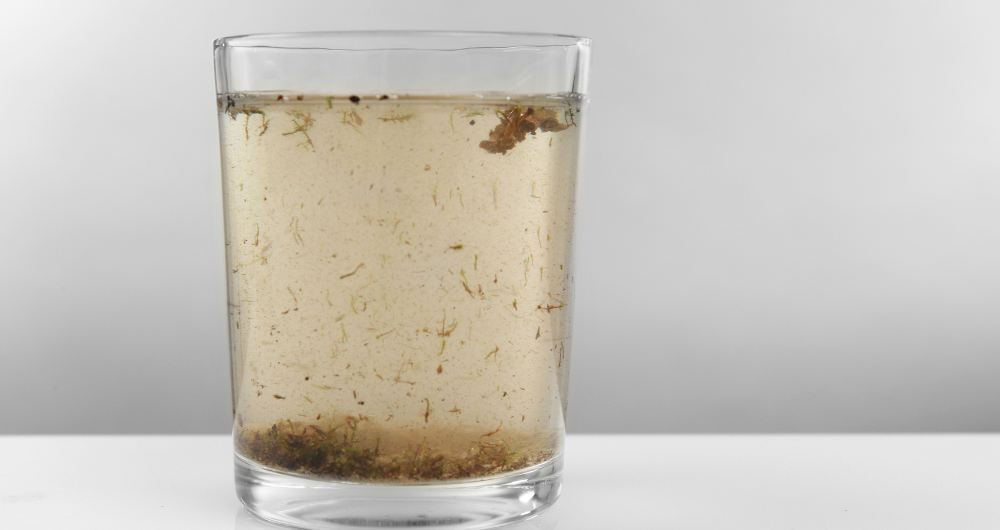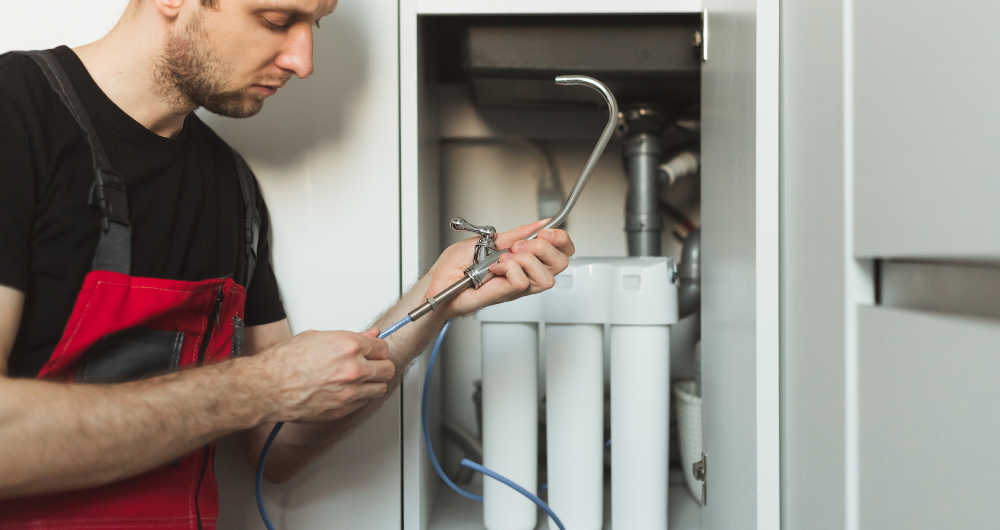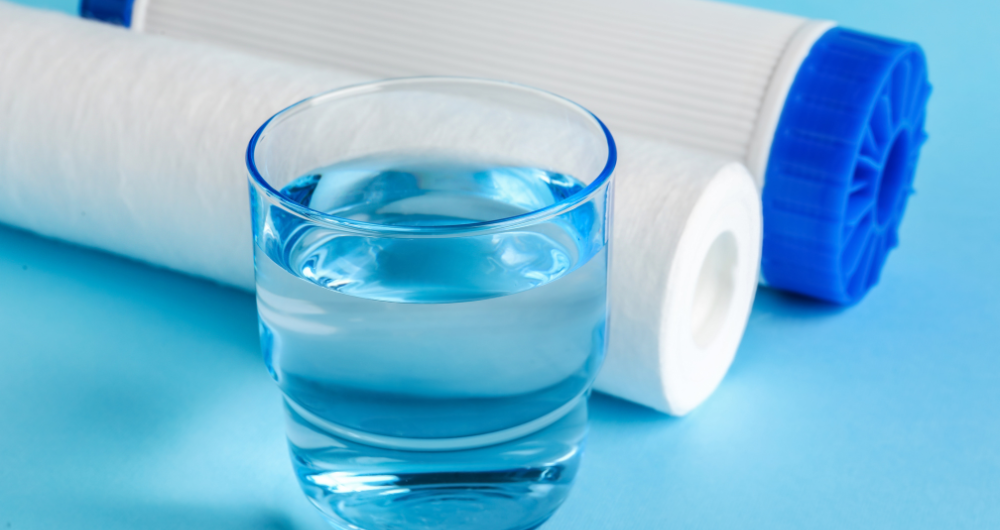Clean and safe drinking water is fundamental to our health and well-being. Due to the region’s unique water quality challenges, Long Islanders need an efficient water filtration system. However, a Long Island water filter system can degrade over time like any other household appliance. Recognizing the signs that your water filter needs an upgrade is vital to maintaining the quality of your water supply.
Table Of Contents
Sign #1: Changes in Water Taste or Odor
Sign #2: Decrease in Water Pressure
Sign #3: Visible Particles or Sediment in Water
Sign #4: Unusual Sounds from the Filter System
Sign #5: The Age of Your Water Filter System
Sign #6: Your Water Filter Isn’t Removing New Contaminants
Sign #7: Alarms or Indicator Lights on the System
Sign #8: System Leaks or Corrosion
Sign #9: Noticeable Scale Buildup
What to Consider When Upgrading Water Filter
FAQ Section
Key Takeaways
|
Sign #1: Changes in Water Taste or Odor
The first and often most noticeable sign that your Long Island water filter may need an upgrade is a change in the taste or odor of your water. This can be a sudden development, where your water starts to taste salty or like chlorine, or it may develop a musty, earthy, or rotten egg odor.
These unpleasant changes indicate that your water filter is no longer performing at its best. Long Island’s unique water sources, primarily aquifers, can introduce various substances into our water supply, such as natural minerals and man-made pollutants. Over time, a water filter can become saturated with these contaminants, which leads to losing its ability to remove them from your water effectively.
When you notice these changes, it’s a clear signal that your current Long Island water filter system might be due for an inspection or an upgrade. An efficient, updated water filtration system can significantly improve the taste and smell of your water, ensuring that what you’re drinking is not only pleasant but safe. Upgrading your Long Island water filter can restore the quality of your water, making it refreshing and enjoyable to drink once again.

Sign #2: Decrease in Water Pressure
A significant decrease in water pressure is a telltale sign that your Long Island water filter may require an upgrade. When water flows more slowly than usual from your faucets or your shower’s water pressure suddenly feels weak, it’s often due to your water filter clogging with sediment and contaminants. This is a common issue for Long Island homes, where the aquifers can carry a mix of natural sediments and minerals that gradually accumulate in water filters, reducing their efficiency and water flow.
This problem affects the convenience of daily water use and signals that the filter is struggling to process the incoming water, potentially allowing higher concentrations of contaminants to remain. For residents relying on Long Island water filters, this diminished water pressure can indicate that the current system is no longer up to the task. Upgrading to a newer, more advanced water filtration system can alleviate this issue, ensuring water flows freely and cleanly through your pipes.
Sign #3: Visible Particles or Sediment in Water
The appearance of visible particles or sediment in your water indicates that your Long Island water filter may need to be fixed. When you fill a glass of water and notice floating particles or a cloudy appearance, it’s a sign that your filter fails to catch these impurities. This issue is particularly relevant to Long Island residents, as the area’s reliance on aquifer systems can introduce a variety of natural and man-made sediments into the water supply.
Visible particles in your water are unappealing and can pose health risks, as they may include harmful contaminants that the water filter should eliminate. This situation underscores the importance of having a fully operational Long Island water filter system that can handle the specific challenges of filtering local water efficiently. When sediment becomes noticeable in your water, it strongly indicates that your current filtration system needs an upgrade. Opting for a modern, more capable water filter can ensure your water is clear, clean, and free from visible impurities.
Sign #4: Unusual Sounds from the Filter System
Pay attention to unusual sounds from your Long Island water filter system. Noises such as gurgling, humming, or buzzing can be alarming and often indicate a problem within the system. These sounds may suggest air being trapped in the lines, mechanical issues with the filter itself, or a sign that the system is working harder than it should to pump water through a clogged or aging filter.
A well-functioning Long Island water filter should operate quietly and efficiently. If you notice persistent or loud noises from your filter, it’s a clear sign that the system may need maintenance or, more likely, an upgrade.
Ignoring these sounds can lead to more significant issues, such as decreased water quality or damage to the water filter system. Upgrading to a newer model often resolves these issues, providing a quieter operation and more reliable filtration. Modern water filtration systems are designed to handle the specific needs of Long Island water, offering a more durable and efficient solution to keep your water clean and your home quiet.
Sign #5: The Age of Your Water Filter System
Water filtration systems, like any household appliance, have a finite lifespan. Your Long Island water filter system’s age determines its efficiency and effectiveness. Over time, these systems can wear down, and their ability to remove contaminants can diminish. Long Island residents should know that local water quality standards and technology are continually evolving. Older filtration systems may need to meet the current clean and safe drinking water requirements.
If your water filter system has been in use for several years, it’s worth considering an upgrade to a more modern and efficient model. By doing so, you can stay ahead of changing water quality standards and ensure that your household receives the highest quality water that meets both safety and taste preferences.

Sign #6: Your Water Filter Isn’t Removing New Contaminants
Like many regions, Long Island’s water quality is subject to change over time due to various environmental factors, industrial activities, and agricultural practices. This means that the composition of your local water supply can evolve, which can introduce new contaminants that may not have been present when your current water filter system was installed.
A significant sign that your Long Island water filter may need an upgrade is when it struggles to remove these new contaminants effectively. Modern water filtration technology is continually advancing to address emerging threats to water quality, and older filtration systems may need help handling these evolving challenges.
By upgrading to a more advanced Long Island water filter, you can stay ahead of these changes in water quality. Newer systems are designed to provide superior protection against a broader range of contaminants, ensuring that your water remains safe, clean, and free from the latest pollutants that may affect your water supply.
Sign #7: Alarms or Indicator Lights on the System
Modern water filtration systems often come equipped with alarms or indicator lights designed to alert homeowners about the status of their filter system. These alerts are invaluable for keeping your Long Island water filter in optimal working condition.
When your water filter system activates an alarm or indicator light, it is crucial to pay attention and take appropriate action. These signals can indicate a range of issues, such as filter saturation, the need for maintenance, or even potential malfunctions within the system.
Ignoring these alerts can have consequences for your water quality and the overall performance of the filter. For individuals who rely on these systems to ensure clean and safe drinking water, staying vigilant about these alarms is essential.
Understanding the meaning of these signals and acting promptly can significantly improve your water filter’s effectiveness. In some cases, a simple filter replacement or maintenance procedure may be all that’s needed to restore optimal performance.
Sign #8: System Leaks or Corrosion
Visible leaks or signs of corrosion in your water filter system indicate wear and tear. These issues compromise the filtration system’s integrity, allowing contaminants to bypass the filter and enter your water supply. Leaks or corrosion should be addressed, as they can lead to more significant problems over time.
Upgrading to a new Long Island water filter system resolves these issues. Knowing that your water is safeguarded against potential contamination provides peace of mind.
Sign #9: Noticeable Scale Buildup
Scale buildup on fixtures, appliances, and plumbing components is a visible sign of hard water, which can be expected in Long Island. Hard water contains high levels of minerals like calcium and magnesium, which can accumulate over time and lead to scale deposits.
While not necessarily harmful to health, scale buildup can damage your plumbing system, reduce the efficiency of appliances like water heaters and dishwashers, and create aesthetic issues. Upgrading to a water softening system in conjunction with your water filter can help combat the effects of hard water, preserve the longevity of your appliances, and improve water quality.

What to Consider When Upgrading Your Water Filter
Several crucial factors should guide your decision-making when upgrading your Long Island water filter. By carefully considering these elements, you can choose the right filtration solution that meets your household’s specific needs and effectively addresses the unique challenges of Long Island’s water quality.
Assess Your Water Usage and Needs
Before embarking on the upgrade journey, take a moment to assess your household’s water usage and requirements. Consider factors such as the number of family members, daily water consumption, and the appliances that rely on your water supply. Understanding your water needs will help you select a water filter system with the appropriate capacity and flow rate to ensure an uninterrupted clean water supply.
Evaluate Your Local Water Quality
Long Island’s water quality can vary depending on your location. It’s essential to understand the contaminants present in your local water supply. This information can be obtained from local water quality reports or by consulting with water quality experts. Identifying the specific impurities in your water will guide you in selecting a filtration system that can effectively target and remove those contaminants.
Consider Filtration Technology
Water filtration technology has advanced significantly in recent years. When upgrading your Long Island water filter, explore the different filtration methods available. Some systems use activated carbon to adsorb contaminants, while others rely on reverse osmosis for thorough purification. Understanding the strengths and weaknesses of each technology will help you choose the one that best suits your water quality needs.
Consult with Water Quality Experts
Choosing the right water filter can be a complex decision, especially when dealing with the unique challenges presented by Long Island’s water sources. Consulting with water quality experts or professionals in your area can provide invaluable insights. These experts can assess your water quality issues and recommend the most suitable filtration solution, ensuring you make an informed choice.

FAQs
1. How often should I replace my Long Island water filter?
The replacement frequency of your Long Island water filter can vary based on factors such as filter type, usage, and local water quality. Generally, it’s recommended to assess your filter’s performance every 6 to 12 months. However, if you notice any signs mentioned in the blog, such as changes in water taste or odor, decreased water pressure, or visible contaminants, consider an upgrade or replacement sooner to ensure continued water quality.
2. Can a water filter remove all contaminants from Long Island water?
While water filters are highly effective at reducing many contaminants, no filter can remove 100% of all impurities. Long Island water sources can contain many substances, including minerals, sediment, and occasional contaminants. Advanced systems like the Phountain Water Filtration can significantly reduce common and emerging contaminants, providing superior protection. However, it’s essential to regularly monitor your water quality and consider additional treatment options if necessary.
3. Are there any maintenance requirements for Long Island water filters?
Yes, regular maintenance is crucial to ensure the longevity and effectiveness of your water filter system. Depending on the type of filter you choose, maintenance tasks may include replacing filter cartridges, cleaning filter components, and periodic system checks. Proper maintenance can prevent clogs, reduced water pressure, and system malfunctions.
4. What is the difference between a water softener and a water filter?
While water softeners and filters improve water quality, they serve different purposes. Water softeners primarily address the issue of hard water, which contains excess minerals like calcium and magnesium. They prevent scale buildup and protect plumbing and appliances. Water filters, on the other hand, focus on removing contaminants, such as sediments, chemicals, and microorganisms, to provide clean and safe drinking water. Combining both systems may be necessary to address all water quality concerns in some cases.
5. Can I install a Long Island water filter or seek professional installation?
The complexity of water filter installation can vary depending on the type and model of the system. While some filters are designed for easy DIY installation, others may require professional installation to ensure proper setup and performance. It’s advisable to consult with water quality experts or the manufacturer’s guidelines to determine the best approach for your specific Long Island water filter system. Professional installation can provide peace of mind and ensure your system operates optimally.
Upgrade Your Water Quality — Contact Phountain Water Filtration Today!
Recognizing the signs that your Long Island water filter needs an upgrade is crucial for maintaining the safety and quality of your drinking water in Garden City, NY. Whether it’s changes in taste, decreased water pressure, or visible contaminants, each sign indicates that your current system may no longer be effective. By upgrading to a Phountain Water Filtration system, you can ensure that your water is clean, safe, and free from the latest contaminants known to affect Long Island’s water supply. Stay proactive about your water quality and consider an upgrade today to protect your health and well-being.

